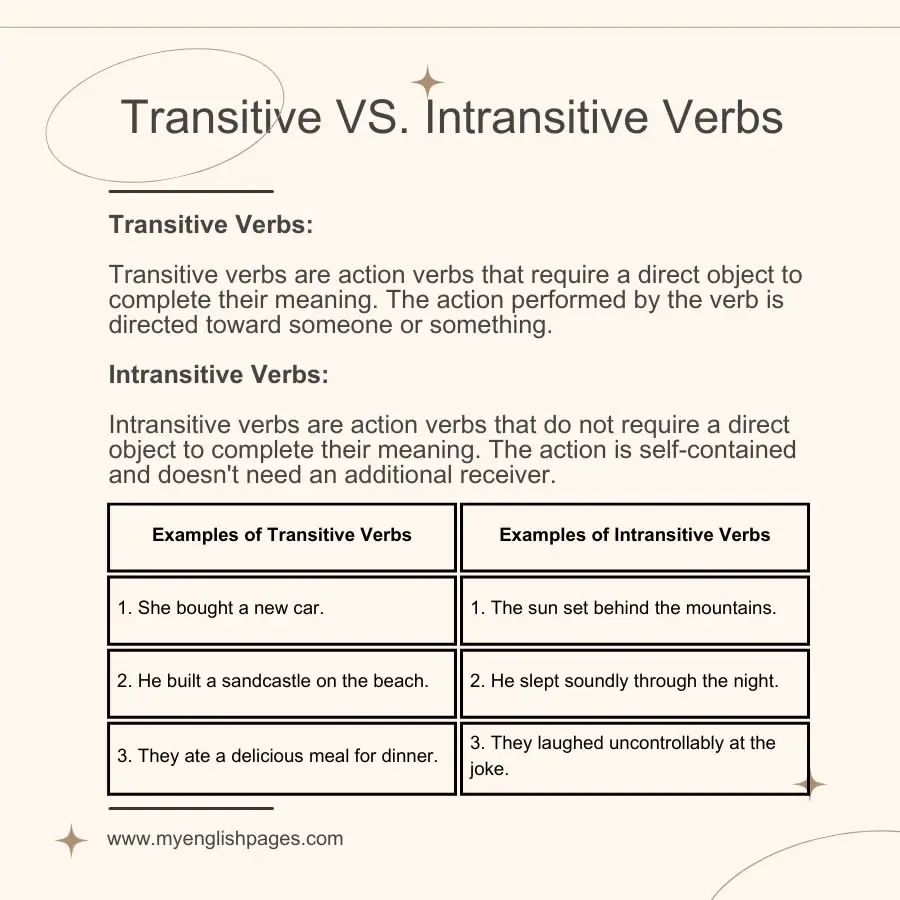Verbs are a crucial part of the English language, as they express action or state of being in a sentence. Understanding the difference between transitive and intransitive verbs is essential for mastering grammar and sentence structure.
Transitive and intransitive verbs are two categories that verbs can fall into, depending on how they function in a sentence. Knowing the distinction between these two types of verbs can help you construct clear and coherent sentences.
Difference Between Transitive and Intransitive Verbs
Transitive verbs require a direct object to complete their meaning in a sentence. This means that the action of the verb is done to someone or something. For example, in the sentence “She ate the apple,” the verb “ate” is transitive, and “the apple” is the direct object that receives the action of the verb.
In contrast, intransitive verbs do not require a direct object to complete their meaning. These verbs express an action that does not transfer to an object. For example, in the sentence “He sleeps,” the verb “sleeps” is intransitive because it does not require a direct object to make sense.
Another key difference between transitive and intransitive verbs is that transitive verbs can be transformed into passive voice sentences, while intransitive verbs cannot. Passive voice sentences focus on the receiver of the action rather than the doer. For example, the transitive verb “eat” in the active voice sentence “She ate the apple” can be changed to passive voice as “The apple was eaten by her.”
It is important to note that some verbs can function as both transitive and intransitive, depending on how they are used in a sentence. For example, the verb “run” can be transitive in the sentence “She runs a marathon” and intransitive in the sentence “She runs every day.”
Understanding the distinction between transitive and intransitive verbs can help you construct grammatically correct sentences and communicate more effectively. By recognizing how verbs function in a sentence, you can enhance your writing and speaking skills.
In conclusion, transitive verbs require a direct object to complete their meaning, while intransitive verbs do not. Knowing the difference between these two types of verbs can improve your understanding of grammar and sentence structure, ultimately enhancing your communication skills.
